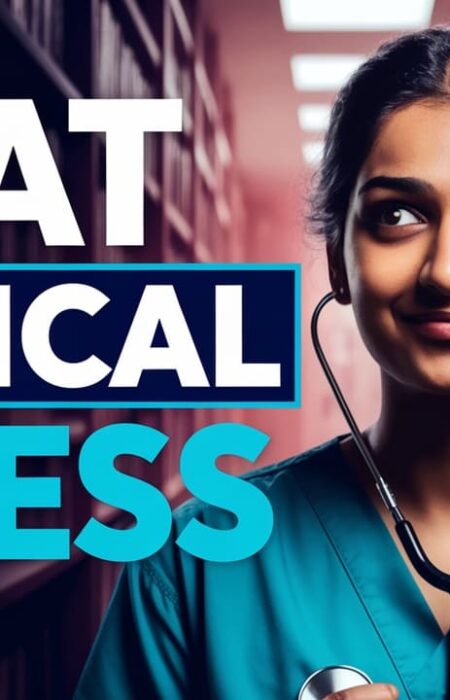Standard Books(Foreign Authors) in MBBS: To Read or Not to Read?
Hey, future doctors! Let’s talk about a debate that every MBBS student comes across at some point – ‘should you read standard books by foreign authors, or should you stick to the tried-and-tested Indian authors?’
The pressure is real. Seniors tell you that Robbins is a must, but others insist Harshmohan is enough. So, how do you decide? Let me help you make your choice, in a way that’s practical, realistic, and compatible with your journey as a medico.
Do You Really Need Standard Books?
First things first – there’s no compulsion to read standard books. Let me say it louder for those at the back: you can pass with great marks even without even touching a single foreign-authored textbook.
These books are not some magical key to distinction.
Sometimes, it’s not even a good idea to dive into standard books in the early years. For example, I would never recommend Gray’s Anatomy or Harper’s Biochemistry in your first year. The syllabus is massive, and you’re already struggling with the shift from NEET UG.

Focusing on simpler, easier-to-grasp books like BD Chaurasia is always better for these subjects. It helps you prioritize the important information that will be tested during exams. And you can always explore advanced books once you’ve built a solid foundation.
Why Some Students Stick to Indian Authors
Regional authors are widely preferred by students all over India. Textbooks like Shanbagh for Pharmacology or P. L. Dhingra for ENT are designed specifically for the Indian curriculum.
As I said, they cover exactly what’s needed for university exams and competitive tests like NEET PG. Plus, they’re smaller, concise, written in easy language, and save you a lot of time.

For many students, Indian books feel less overwhelming. While foreign books are obviously incredible, they often contain too much detail that might not even be relevant for your exams. It becomes difficult to understand what is practically important and what is not.
Indian books break down concepts in simpler language, making them easier to grasp when you’re overwhelmed or overburdened already.
The Pressure of “You’re Not Serious If You Don’t Read Standard Books”
Don’t let anyone tell you that you’re “average” or “lazy” if you don’t read Katzung’s pharmacology cover to cover. To be very very honest, it’s not about what book you read; it’s about how well you understand the material.
I know students who read all the best books but still find it difficult to apply concepts practically, and I also know students who only read the exam preparatory manuals but still manage to outwit everybody.

The real goal is passing your exams and becoming a good doctor who remembers all the important things. If sticking to Indian authors helps you achieve that, there’s absolutely nothing wrong with it.
In fact, it’s better to be an average student with a solid grasp of basics than to bite off more than you can chew and struggle to keep up. Set realistic expectations for yourself and focus on consistency.
When should you consider reading standard books?
Standard books definitely have their place, especially as you get used to MBBS.
Guyton’s Physiology is a book you should consider reading in the second half of your first year, once you’ve understood basic physiology concepts.
Robbins Pathology and Harrison’s Medicine are goldmines of information, especially when you’re in the later years or preparing for postgraduate exams. These books provide nuances and depth that smaller textbooks might not cover.

That being said, even after you’re done with the basics, not every subject requires a foreign book. For example, in pharmacology and microbiology, which are very factual subjects, even Indian books can feel like a lot to memorize.
Imagine trying to tackle a foreign textbook with even more content! It’s about balancing the time you have and the effort you can realistically put in.
Choosing What Works for You
If you’re wondering whether to pick up a standard book, ask yourself:
- Do I have the time to dedicate to this book?
- Will it help me understand concepts better than my current resources?
- Am I struggling to grasp something that this book could clarify?
For subjects like physiology, you might find Guyton helpful as a reference to build your understanding over time. But it’s not something you need to read cover to cover in your first year.
Don’t ignore the challenges of foreign books. They’re often bulky, expensive, and loaded with information that isn’t directly relevant to your exams.
So, start with Indian authors, and if you feel ready, you can always explore advanced options.
The key takeaway is balance. Choose wisely based on your comfort level, time constraints, and exam goals.
For some, starting with Indian books and gradually incorporating foreign authors as references works best. For others, sticking to concise, exam-focused books is enough. The decision is yours, and there’s no “gold-standard” approach.
Conclusion:
In the end, whether you choose to stick to Indian authors or explore foreign textbooks, remember that the goal is to become a competent doctor. Don’t let FOMO or peer pressure drive your decisions.
Take your time, assess your capabilities, and focus on what works best for you. Remember, it’s better to understand your material thoroughly than to skim through advanced books without grasping the basics.
Trust your instincts, stay consistent, and don’t be afraid to adapt your study strategy as you go. Happy studying!






